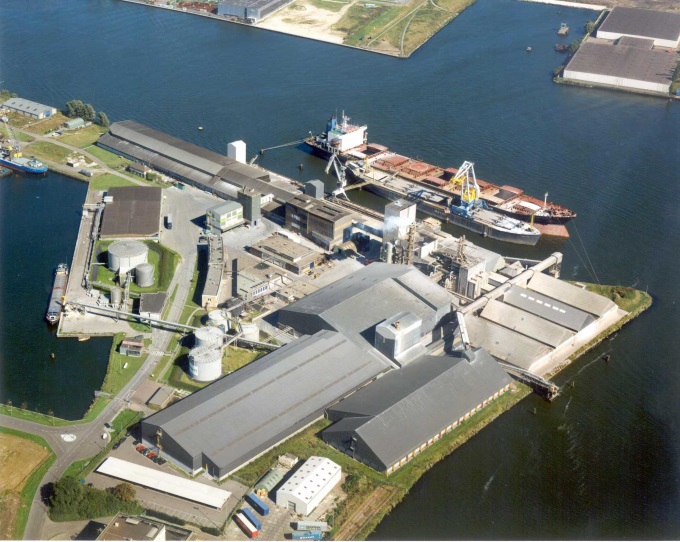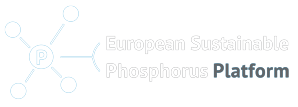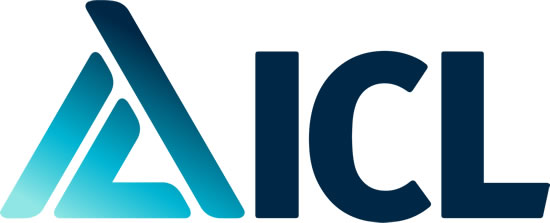ICL Fertilizers
ICL Fertilizers runs several fertiliser production units in different parts of the world; The Netherlands (Amsterdam), Germany (Ludwigshafen) and Israël.
All of them are based on the attack of phosphate rock with sulphuric acid, phosphoric acid, or combinations of the two (secondary attack) after which potassium chloride (MOP) or potassium sulphate (SOP) or trace elements (Cu, Mg, Mn, Mo, Zn, etc) can be added to make different forms of PK’s and on top of that ammonium sulphate to produce NPK’s. These processes are very suitable for the recycling of secondary phosphates (contrary to other NPK processes based on ammonium nitrate) without any safety issue.
At ICL Fertilizers in Amsterdam extensive research and testing has been and is still being performed regarding the use of secondary phosphates in the fertiliser production. Extensive pilot-plant scale tests have been performed regarding the use of secondary phosphate sources such as struvite, sewage sludge ash (SSA), meat- and bone meal ash (MBMA) and calcium phosphates. Acidulation of calcium phosphates, sewage sludge ash, meat- and bone meal ash and addition of struvite to fertiliser have also been successfully carried out on plant-scale tests.
As a phosphate fertiliser producer with an own supply of phosphate from the Israeli desert, it could be perceived as odd to be researching the use of secondary phosphates as this can be seen as a ‘competitive source’. The vision of ICL Fertilizers is that sustainability is important and the environment is to be taken care of. ‘Closing the loop’ on phosphorus could elongate the use of the phosphate mines and improve the distribution of phosphorus on a world-wide scale. The fact that ICL’s European plants are in countries with excess phosphate adds to this philosophy: using a part of all recycled phosphate in plants that export a major part of their products to countries with a deficit on phosphate, helps solving the existing surplus in The Netherlands and Germany.
Currently, we have a capacity to process approximately 10 kilotons of secondary phosphate per year. ICL’s ambition is to use 25-30 kilotons of secondary phosphate by 2015. In order to process this amount, investments have to be made to modify the plant to be able to handle the new raw material feed, especially with regards to SSA and MBMA as these are very fine. Negotiations are still ongoing with various parties to establish a continuous supply of quality secondary phosphates.

ICL Fertilizers Amsterdam Plant
Further information
C.P. Langeveld & K.W. ten Wolde, Phosphate recycling in mineral fertiliser production, IFS Conference Proceedings 727, May 2013, ISBN 978-0-85310-365-3
Contact
ICL Fertilizers
PO Box 313
1000AH Amsterdam
The Netherlands
T +31 (0)20-58 15 100

